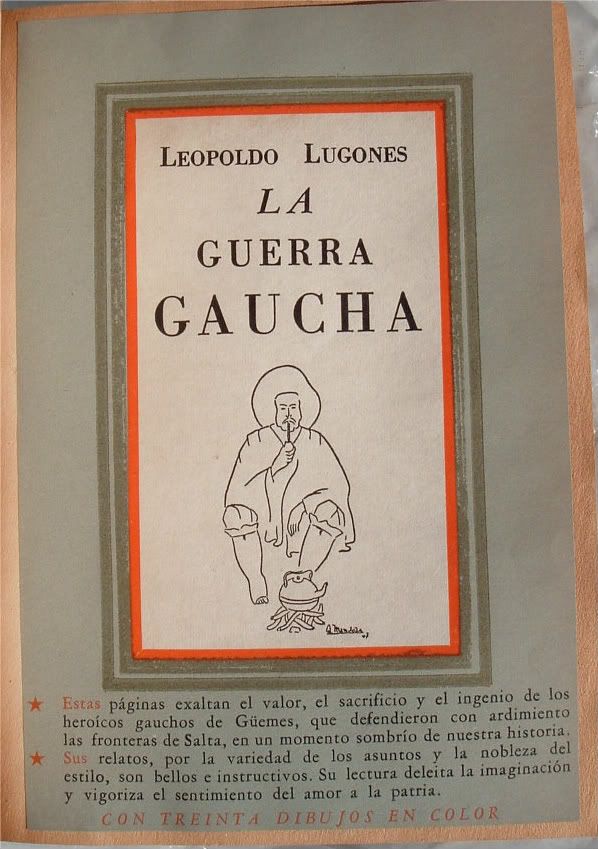
One dramatic footnote in the Argentine War of Independence took place in the northern provinces of Salta and Jujuy, where Spanish-led troops faced off with a guerrila force made up of local gauchos. Though not as strategically important as the campaigns of San Martín, Leopoldo Lugones found the confrontation between Spaniard and gaucho to be fertile ground for an exploration of courage, honor and patriotism. He travelled to the region to learn the oral traditions of the conflict and see the locations where the fighting had taken place.
Though he originally intended to write it as a novel, Lugones found that he could not work everything he wanted to say into one narrative, so La Guerra Gaucha became a collection of stories about the war. The short stories are to some extent disconnected: some feature skirmishes or battles while others feature the more day-to-day aspect of life during the war, and rarely does one get a sense of where each story fits into the larger strategic struggle.
The fighting, however, does serve as the binding force of the narrative. Even a simple local gathering can suddenly erupt into tense confrontation, and there are several stories in which the act of violence occurs suddenly, shockingly. The stories are also connected by several thematic elements, including the harshness of war, the desire for freedom, courage, sacrifice, fatalism.
The book does not want for fascinating characters--the friar who risks his life to signal the patriots, the gaucho who stages a suicide attack on a royalist fort, the young royalist lieutenant falling in love with a local widow--but Lugones' descriptive powers are effectively used to evocatively describe the land and its features. I never really considered Lugones a brilliant writer, as his other short story collections (Strange Forces, Fatal Stories) were longer on concept than linguistic fireworks. La Guerra Gaucha, on the other hand, reflects a sophisticated and striking command of language and imagery in service of the story he tells. Here he crafts a real sense of place to serve as powerful backdrop for the war being waged.
I will admit there were off moments, where Lugones shades off into a simplistic nationalism. Perhaps these struck me as terrible in part because I was aware of his later embrace of fascism, but luckily there were very few of those moments. Overall, I'd have to call it the strongest of Lugones' short story collections.
(Sadly, this book does not appear to have ever been translated.)



No comments:
Post a Comment